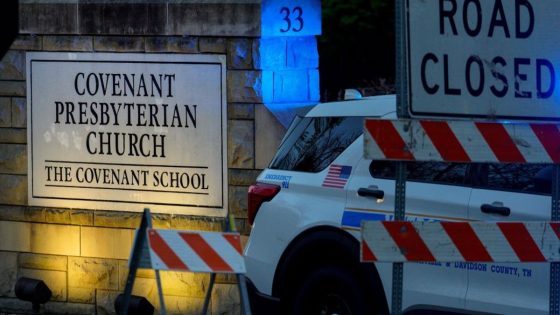What do you do in Palm Beach with two adjacent lots, one of which is home to your primary residence facing the ocean on the North End of town?
If you’re former Apple CEO John Sculley and his wife, Diane, you combine the two properties. Then you make plans to add on to the house and build a new garage and guesthouse. And while you’re at it, why not include a separate gallery building and connect it to the main house and garage building by glass-enclosed walkways on either side?
That was the plan that just won the Sculleys a unanimous approval, with minor conditions, from the town’s powerful Architectural Commission during its second review of the project at 1214 N. Ocean Blvd.
Before the July 24 vote, Commissioner Kenn Karakul praised designer Michael Perry for regulating the scale of the project. “It wasn’t blown out of proportion, which I really appreciate. I think you married the (two) properties well,” Karakul said.

Perry, principal of MP Design & Architecture in Palm Beach, designed previous improvements to the main residence after the Sculleys bought it six years ago.
John Sculley headed Apple between 1983 and 1993 and is well known for firing the company’s co-founder, the late Steve Jobs. Jobs later returned to lead the company.
Before his tenure at Apple, Sculley served as vice president and president of Pepsi-Cola. He has since been involved in a number of companies, many with a technology focus.
Diane Sculley is a former construction executive.


Last year, a company affiliated with Diane Sculley expanded the couple’s North End estate by paying a recorded $11.35 million for a one-story, 1950s-era house at 110 Mockingbird Trail on the corner of North Ocean Boulevard. Since demolished, that house stood immediately west of the Sculleys’ three-bedroom, two-story oceanside home at 1460 N. Ocean Blvd., which the couple bought for a recorded $14.925 million in early 2018.
Combined, the Sculleys’ land measures today about an acre between the coastal road and North Ocean Way.
The project approved in July had been initially reviewed by the architectural board in June, when commissioners asked Perry to revise the pitch of some of the roofs and reconsider the choice of the roof material to help unify the buildings. They also wanted Perry to restudy some of the windows and their shutters.


In all, the project approved in July would have 11,041 square feet of living space, inside and out, Perry told the board. The final plans showed Perry had reduced the size of the compound by 186 square feet from the previous version.
Perry discussed residential density at the July meeting, telling the commission the proposed project would have 586 fewer square feet than the combined density of the Sculleys’ main home and the house that formerly stood at 110 Mockingbird Trail.
The focal point of the new compound would be the one-story gallery building — between the main house and the freestanding two-car garage — where the Sculleys would display part of their art collection and entertain guests, Perry said.
Perry described the gallery as a “folly,” an architectural term that typically refers to a small building — such as a teahouse or a pavilion — that adds visual whimsy to an overall architectural plan and landscape. “We wanted it to be a statement piece,” Perry said about the gallery building during the June meeting.
The gallery’s design was inspired, in part, by the postmodern architecture of the late architect Hugh Newell Jacobson, Perry told the board. With clean lines, the building’s silhouette employs two simple geometrical shapes — a square topped by a triangle.
One side of the building would have a similarly-styled porch facing the street, while the other side would face a courtyard with a new pool, all set amid landscaping designed by Mario Nievera of Nievera Williams Design.


Like the rest of the buildings, the gallery would have a white stucco exterior and a white “standing-seam” roof. The other buildings would be topped with white tile roofs and accented by blue window shutters.
Although some commissioners in June questioned the proportions of the gallery building, others were complimentary. Among them was Alternate Commissioner Maisie Grace, who said the building and the overall compound had the right scale to fit in with the relaxed, beachfront character of other homes in the North End neighborhood.
“I think (the overall plan) sort of works. To me, it’s a little bit quirky and fun,” Grace said. “In that way, it’s consistent with North End residences.”
As part of their approval of the project, the commission asked that Perry remove what they called an oversize gable on the one-bedroom guesthouse and adapt its roof.
In the Sculley’s purchase of the property in May 2023 of 110 Mockingbird Trail, Corcoran Group agents Dana Koch and Paulette Koch acted on the couple’s behalf. The seller was Nancy M. Farris, who was represented by one of her daughters, Brown Harris Stevens agent Aubrey Khoury.
When the Sculleys bought their main residence in 2018, they were represented by agent Paula Wittmann, who at the time was affiliated with the old Fite Group, which is today William Raveis South Florida. Wittmann negotiated opposite agent Payton Smith of Douglas Elliman Real Estate and Richard Steinberg, who has since moved from Elliman to Compass Florida. The sellers in 2018 were David and Sarah Fiszel.




Darrell Hofheinz is a USA TODAY Network of Florida journalist who writes about Palm Beach real estate in his weekly “Beyond the Hedges” column. He welcomes tips about real estate news on the island. Email [email protected], call 561-820-3831 or tweet @PBDN_Hofheinz. Subscribe today to support our journalism.
This article originally appeared on Palm Beach Post: Former Apple CEO, wife plan to build seaside compound in Palm Beach
Source Agencies



